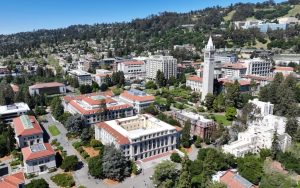The internship experience is a crucial component of higher education, providing students with valuable real-world experience and helping them bridge the gap between academia and the workforce. However, not all internships are created equal, and higher education leaders have the responsibility to ensure that students are receiving quality internship opportunities that will truly benefit them in their future careers.
In order to build better internships, higher education leaders must first understand the current landscape of internships and the challenges that students face. Many students struggle to find quality internships that align with their career goals, while others may not receive proper training and mentorship during their internship experience. Additionally, some students may face barriers such as financial constraints or lack of access to networking opportunities.
One way that higher education leaders can improve the quality of internships is by establishing strong partnerships with industries and employers. By working closely with employers, higher education institutions can better understand the needs of the workforce and ensure that students are gaining relevant skills and experiences during their internships. Additionally, partnerships with employers can help students access a wider range of internship opportunities and increase their chances of securing a full-time job after graduation.
Higher education leaders can also play a role in providing resources and support to students during their internship experience. This could include offering professional development workshops, providing financial assistance for unpaid internships, or connecting students with mentors in their field of interest. By offering these types of support, higher education leaders can ensure that students are better prepared for their future careers and are able to make the most of their internship experiences.
Furthermore, higher education leaders can work to incorporate internships into the curriculum in a more structured and meaningful way. By integrating internships into academic programs, students can receive academic credit for their internship experiences and have the opportunity to reflect on their learning and growth. This can help students to see the value of their internship experiences and connect their classroom learning to real-world applications.
In conclusion, building better internships requires collaboration and partnership between higher education institutions, employers, and students. By working together, higher education leaders can ensure that students are gaining valuable experiences during their internships and are better prepared for their future careers. By providing resources and support, incorporating internships into the curriculum, and establishing strong partnerships with employers, higher education leaders can help students build better internships and achieve their career goals.



